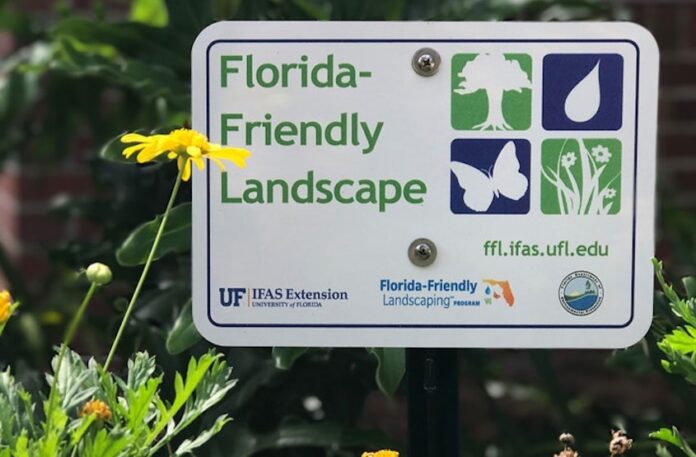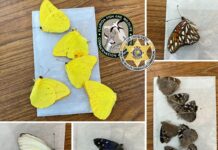
In an age of environmental awareness, the Florida-friendly landscaping (FFL) program offers practical insights into sustainable landscaping practices.
Led by the University of Florida’s Institute of Food and Agricultural Sciences (UF/IFAS) Extension, FFL empowers homeowners, companies, communities and green professionals to cultivate vibrant, ecologically resilient outdoor spaces while deepening their connection to nature. The FFL program is particularly crucial in Monroe County, given its fragile ecosystems susceptible to coastal erosion, habitat fragmentation, invasive species, climate change vulnerabilities, limited freshwater resources and the intricate balance of diverse habitats.
The FFL program promotes principles emphasizing water conservation, soil health, biodiversity, and integrated pest management, forming the foundation for landscapes that enhance beauty and contribute to the health of local ecosystems.
The nine principles of Florida-friendly landscaping
- Right plant, right place: Selecting plants that are well-suited to the local climate, soil and sunlight conditions, ensuring optimal growth and reducing the need for excessive maintenance.
- Water efficiently: Implementing irrigation systems and watering practices that minimize water waste and promote healthy plant growth without overusing water resources.
- Fertilize appropriately: Apply fertilizers in the correct amounts at the right times and use slow-release or organic fertilizers to minimize nutrient runoff and pollution of water bodies.
- Mulch: Adding a layer of organic material such as wood chips or compost to the soil surface to retain moisture, suppress weed growth, and improve soil health by enhancing nutrient content and microbial activity.
- Attract wildlife: Incorporating native plants and habitats that attract beneficial insects, birds and other wildlife to the landscape, promoting biodiversity and ecological balance.
- Manage yard pests responsibly: Employing integrated pest management (IPM) strategies that prioritize non-chemical pest control methods such as biological controls, habitat modification, and mechanical removal, minimizing the use of pesticides and their impact on the environment.
- Recycle yard waste: Composting yard trimmings, leaves, and other organic waste materials to produce nutrient-rich compost for use in the garden, reducing waste sent to landfills and promoting sustainable gardening practices.
- Reduce stormwater runoff: Implementing measures such as rain gardens, permeable paving and vegetative buffers to slow down and filter stormwater runoff, reducing soil erosion and pollution of water bodies.
- Protect the waterfront: Establishing vegetative buffers and erosion control measures along water bodies to prevent soil erosion, filter pollutants and maintain water quality in rivers, lakes and coastal areas.
Florida-friendly landscape recognition
A vital feature of the FFL program is the landscape recognition process. There are three categories for recognition: home, commercial and new construction. Landscapes undergo evaluation based on a checklist of practices, with recognized landscapes receiving a yard sign and certificate at the silver or gold level.
Under the Florida-friendly landscaping program, 15 landscapes have been recognized in Monroe County over the past five years, with 12 achieving gold-level recognition and 3 attaining silver-level recognition.
Ready to start?
Follow these steps:
- Download the checklist from the website: https://ffl.ifas.ufl.edu.
- Assess your landscape and make necessary changes.
- Contact your Monroe County Extension office at (305) 998-9580 or access the Florida-friendly landscaping home landscape recognition manual and other resources online for assistance.
- When your landscape is ready, contact your local UF/IFAS Extension agent to schedule a site evaluation, where an extension agent and team of master gardeners’ volunteers will assess your landscape’s Florida-friendly status.
Why is FFL essential?
FFL promotes sustainable alternatives to conventional landscaping, guiding low-impact, environmentally friendly practices that conserve water and minimize pollutant runoff into Florida’s waters. Moreover, creating FFL gardens protects native species and creates green spaces that foster recreation, education, community engagement and a deeper connection to nature.





















